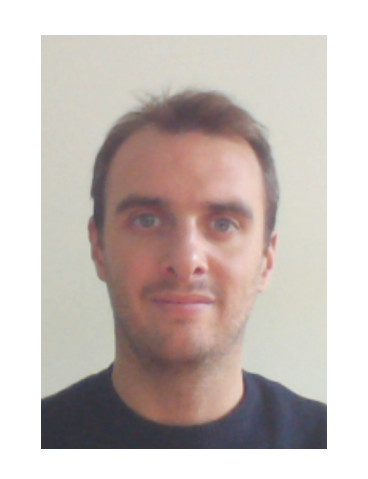Bertrand Glize

Bertrand Glize
Partenaire extérieur
Education & Research interests
http://www.inb.u-bordeaux2.fr/dev/FR/unite.php?unite=Handicap%20et%20syst%E8me%20nerveux
I obtained my MD degree (Physical Medicine and Rehabilitation, 2013) at the University of Bordeaux (France). I am particularly interested in cognitive impairment and post stroke rehabilitation. I collaborated with Pr Gilles RODE and his team (ImpAct team, INSERM U1028, CNRS UMR 5292, Lyon France) to study neglect rehabilitation and prismatic adaptation. Another of my research focuses is to predict recovery from post-stroke aphasia, using an anatomo-physiological (Imaging, TMS, EEG/ERP) approach associated with cognitive assessment.
Publications
- Quality of Life in Aphasic Patients One Year after a First-Stroke. M. Koleck, K. Gana, C. Lucot, B. Darrigrand, J.M. Mazaux, and B. Glize. Quality of Life Research. 2016
- Language features in the acute phase of post-stroke severe aphasia could predict the outcome. B. Glize, M. Villain, L. Richert, M. Vellay, I. de Gabory, JM Mazaux, P. Dehail, I. Sibon, M. Laganaro, and PA Joseph. European J of PRM. 2016
- Affective prosody and depression after stroke: a pilot study. M. Villain, C. Cosin, B. Glize, S. Berthoz, J. Swendsen, I. Sibon, and W. Mayo. Stoke. 2016
- Effector-dependent neglect and splenial disconnection: a spherical deconvolution tractography study. Lunven M, De Schotten MT, Glize B, Migliaccio R, Jacquin-Courtois S, Cotton F, Bartolomeo P and Rode G. Experimental Brain Research. 2014 Aug 13
- Autochthonous strongyloidiasis, Bordeaux area, South-Western France - B. Glize, D. Malvy - Travel Medicine and Infectious Disease, 2013 Feb 20
- Infarctus médullaire aigu : un diagnostic méconnu au pronostic sévère. À propos d’un cas - N. Alberti, A. Lamblin, R. Barbot, C. Inchausti, B. Glize, B. Joly, H. Vanquaetem, J. Bocquet. Journal Européen des Urgences et de Réanimation, Volume 24, Issue 4, December 2012, Pages 250-253 -
Communications
ORAL Communication
- ESPRM 2016 & SOFMER 2015: Predicting aphasia recovery with motor evoked potentials / Language assessment to predict the clinical outcome of aphasia after a stroke.
- ISPRM 2015 Berlin: Language assessment to predict the clinical outcome of aphasia after a stroke.
- SOFMER 2013 : Effets de l’intégration audiovisuelle sur le système moteur dans la perception du langage : une étude en TMS
- SOFMER 2012:
- Bottom-up effect of prism adaptation on hemineglect in virtual spatial domain.
- Spatial cognition and virtual reality: review and interest for rehabilitation.
- ICSC (International Conference on Spatial Cognition) 2012: Bottom-up effect of prism adaptation on hemineglect in virtual spatial domain.
- ESPRM (European society of physical and rehabilitation medicine) 2012:
- Functional impact of the 25 OH vitamin D deficiency for stroke patients,
- Neglect: from assessment to rehabilitation.
- SOFMER 2011: Functional impact of the 25 OH vitamin D deficiency for stroke patients
Posters
- WFNR 2016: Predicting aphasia recovery with motor evoked potentials / Language assessment to predict the clinical outcome of aphasia after a stroke.
- ISPRM 2015 Berlin: Similarities and differences of perception of disabilities between patients and general practitioners after a stroke, a pilot study.
- P2T 2014 (IXème congrès de pharmacologie et physiologie thérapeutique) : Effets de l’intégration audiovisuelle sur le système moteur dans la perception du langage : une étude en TMS
- WCNR (world congress of neurorehabilitation) 2014 : Bottom-up effect of prism adaptation on hemineglect in virtual spatial domain.
- ICSC (International Conference on Spatial Cognition) 2012: Double dissociation between line bisection and target cancellation in spatial neglect: An MR tractography study. M. Lunven, B. Glize, M. Thiebaut De Schotten, S. Jacquin-Courtois, M. Blanchard, P. Bartolomeo, G. Rode
- SOFMER 2012: Small bowel obstruction by superior mesenteric artery syndrome: A diagnosis to know after intensive care stay. S. Chapeau, B. Glize, M. Barsan, L. Tell, G. Rode
